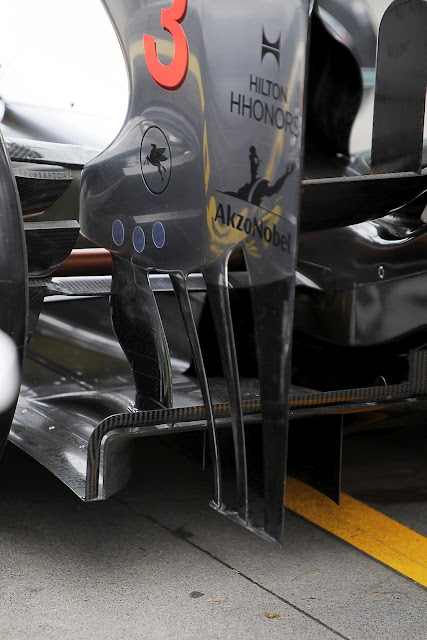Business Class is at the front, right in the nose of the aircraft. So I can't sit near the wing like I used to do. But that doesn't stop me from seeing other aircraft lurking around the airport, waiting for take-off or just landed. I am always fascinated by the wing geometry alteration during take-off and landing. This is the situation when the slats (leading edge extension) and flaps (trailing edge extension) are fully deployed to increase the Cl (coefficient of lift) to balance the aircraft during this high-lift, low speed situation. In the take-off configuration, drag is still a factor, so the extension deployment is not that extensive, but in landing, where drag is not so important, it is amazing to see the flaps extend so far back. One can literally see the wing cutting through the air, releasing the visible white-ish stream as it cuts through the low clouds.
How the flaps work? In a nutshell, it increased the wing angle of attack. In a simple terms, it means tilting the wing rear edge downwards more and more. By increasing the angle of attack, lift is increase too. Another purpose of having the flaps and slats are to provide slotted duct to retain the boundary layer on the wing surfaces. Otherwise, such a steep angle of attack will results in stalling, effectively reducing the lift and upped the drag. The alteration to the wing geometry can be seen from the figures below.
Another aerodynamics marvels that can be seen on bi-weekly basis is the F1 car wings. Slotted duct, blown aero surfaces, cascaded wing surface, extreme 3D bending of wing profile and chord are among the marvels analyzed in CFD these days, when each F1 aerodynamicist are striving to find that last ounce of downforce and cutting of drag. Pictures below are McLaren rear end, superbly sculpted, slotted as it it will cut through the air seamlessly. Read more after the jump.
 Another samples of extreme aero-optimization with cooling in mind is demonstrated by Renault R25. Just see the interacting gills, winglet, flow deflector and the whole rear end wrapping around the internals. Another photo below is R24 diffuser, taken live at Enstone's Renault F1 HQ in 2004 by fellow competitors, when I was touring around during the Renault F1-Altran Engineering Academy 2004. Yours truly was left speechless observing the utmost detailing work done in honing the aero and dynamics efficiency of the Formula 1 car at the moment.
Another samples of extreme aero-optimization with cooling in mind is demonstrated by Renault R25. Just see the interacting gills, winglet, flow deflector and the whole rear end wrapping around the internals. Another photo below is R24 diffuser, taken live at Enstone's Renault F1 HQ in 2004 by fellow competitors, when I was touring around during the Renault F1-Altran Engineering Academy 2004. Yours truly was left speechless observing the utmost detailing work done in honing the aero and dynamics efficiency of the Formula 1 car at the moment.
Where is this heading? Well I am kicking myself for letting go the January's opportunity in aero industry that virtually fall on my lap and represent a genuine chance to achieve higher position bypassing the bloody thing call eSKayGi that is bogging me for the next 3 years! I'll make sure that kind of opportunity lost won't happened again. I'll take it.




No comments:
Post a Comment